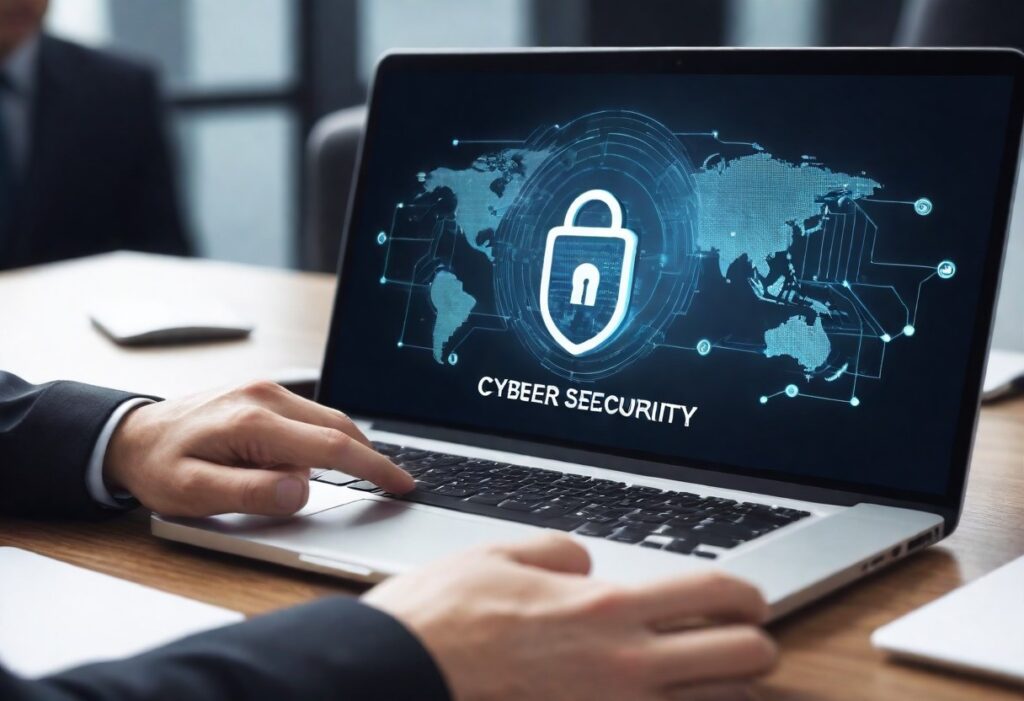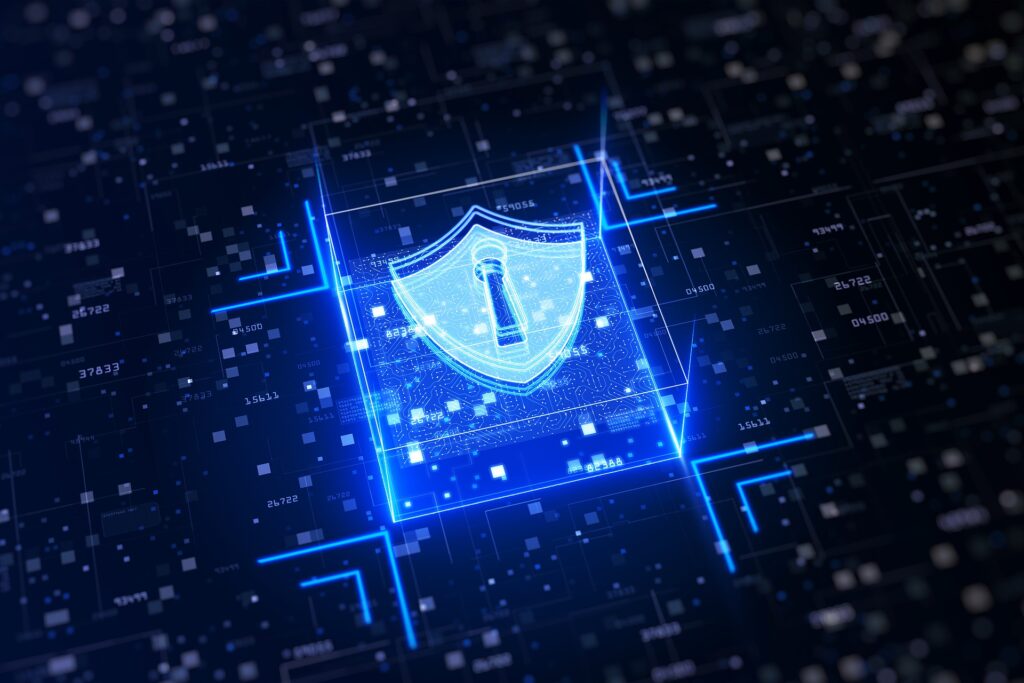
The digital landscape is a constant battleground, and the adversaries are relentless in their pursuit of vulnerabilities. As businesses increasingly entrust technology with sensitive data, the demand for skilled cybersecurity professionals skyrockets. Earning one of the Best Cybersecurity Certifications for 2024 can be your most potent weapon, demonstrating your expertise, validating your skills, and propelling your career forward.
This comprehensive guide delves into the top certifications, catering to a spectrum of experience levels and career aspirations. We’ll meticulously dissect each certification, exploring its purpose, exam content, prerequisites, and the career benefits it unlocks. Whether you’re a seasoned security professional seeking to specialize or a newcomer eager to breach the cybersecurity frontier, this guide equips you with the knowledge to choose the ideal certification for your goals.
Why Consider Cybersecurity Certifications?
In today’s competitive job market, possessing industry-recognized certifications can significantly enhance your resume and make you a more attractive candidate. Cybersecurity certifications demonstrate to employers your commitment to professional development and your in-depth knowledge of critical security concepts.
Here are some key benefits of obtaining a cybersecurity certification:
- Increased Earning Potential: Studies by (cite reputable salary comparison website) have shown that cybersecurity professionals with certifications often command higher salaries compared to their non-certified counterparts.
- Enhanced Credibility: Certifications validate your skills and expertise, giving employers confidence in your abilities to address complex security challenges.
- Career Advancement: Earning relevant certifications can open doors to new career opportunities and specialties within the cybersecurity field.
- Staying Current: Many certifications require ongoing education and renewal, ensuring you remain up-to-date with the latest trends and threats in cybersecurity.
- Networking Opportunities: Certification programs often create opportunities to connect with fellow cybersecurity professionals, fostering valuable industry relationships.
Top Cybersecurity Certifications for 2024
Now, let’s dive into the specific certifications that can elevate your cybersecurity expertise:
CompTIA Security+ (SY0-601): (Entry-Level)
This vendor-neutral certification is an excellent starting point for anyone new to cybersecurity. It validates your foundational knowledge of essential security concepts, including network security, cryptography, risk management, and security controls. CompTIA Security+ is a prerequisite for many advanced cybersecurity certifications and serves as a solid foundation for a security career.
Exam Content:
- Network Security
- Cloud Security
- Compliance and Operational Security
- Cryptography
- Identity and Access Management (IAM)
- Security Assessments and Testing
- Risk Management
- Security Incidents and Disaster Recovery
Benefits:
-
Widely recognized and respected in the cybersecurity industry
-
Ideal for beginners and career changers
-
Provides a strong base knowledge for further specialization
(ISC)² Certified Information Systems Security Professional (CISSP): (Experienced Professionals)
The CISSP is a globally recognized credential for experienced cybersecurity professionals. It demonstrates your comprehensive understanding of information security and your ability to design, implement, and manage an effective cybersecurity program. Earning a CISSP requires a minimum of five years of cumulative paid work experience in two or more of the eight domains of the CISSP Common Body of Knowledge (CBK).
Exam Domains: (Based on the CISSP CBK)
- Security and Risk Management
- Asset Security
- Security Architecture and Engineering
- Communication and Network Security
- Identity and Access Management (IAM)
- Security Assessment and Testing
- Security Operations
- Software Development Security
Benefits:
-
Premier certification for experienced security professionals
-
Highly valued by employers worldwide
-
Opens doors to leadership and management positions
GIAC Security Essentials (GSEC): (Entry-Level to Intermediate)
Offered by SANS Institute, a leader in cybersecurity training, GSEC provides a comprehensive overview of information security fundamentals. It covers a broad range of topics, from security concepts and technologies to risk management and incident response. GSEC is a well-rounded certification suitable for both beginners and security professionals seeking to expand their knowledge base.
Exam Content:
- Security Essentials
- Network Security
- Information Security Fundamentals
- System Administration Security
- Cryptography
- Security Architecture & Engineering
- Operational Security
- Incident Response
Benefits:
-
Well-respected certification from a renowned cybersecurity training provider
-
Covers a wide range of security topics
-
Ideal for foundational knowledge and career development
Certified Ethical Hacker (CEH): (Intermediate)
The CEH certification focuses on ethical hacking methodologies and penetration testing techniques. It equips you with the skills to identify and exploit vulnerabilities in computer systems, similar to how malicious hackers operate. This knowledge is essential for security professionals tasked with identifying and mitigating security risks within their organizations.
Exam Content:
- Social Engineering Techniques
- Session Hijacking Techniques
- Web Server Hacking Techniques
- Wireless Network Security
- Operating System Hacking Techniques
- Cloud Computing Security
- Mobile Device Security
- Malware Threats
- Incident Handling
- Legal and Ethical Issues
Benefits:
- Highly sought-after certification for penetration testers and security analysts
- Provides practical skills in identifying and exploiting vulnerabilities
- Enhances your ability to proactively defend against cyberattacks
Other Notable Certifications:
- (ISC)² Certified Secure Software Security Professional (CCSP): Focuses on software development security best practices.
- CompTIA PenTest+: Validates your skills in penetration testing and vulnerability assessment.
- SANS Institute GIAC Certified Incident Handler Certification (GCIH): Equips you with the knowledge and skills to handle security incidents effectively.
- Certified Information Systems Auditor (CISA): Emphasizes IT audit controls and information security governance.
Choosing the Right Certification:
The best cybersecurity certification for you depends on your current skillset, experience level, and career aspirations. Consider these factors when making your decision:
- Your Experience: Entry-level certifications like CompTIA Security+ are ideal for beginners, while advanced certifications like CISSP are for the professionals.
- Your Career Goals: Do you want to specialize in penetration testing, security architecture, or incident response? Choose a certification that aligns with your desired career path.
- Employer Requirements: Some employers may require specific certifications for certain positions. Research job postings in your field to see if there are any preferred credentials.
Additional Tips for Success:
- Gain Relevant Experience: Combine your certification studies with hands-on experience through personal projects, security labs, or internships.
- Stay Current: The cybersecurity landscape is constantly evolving. Commit to ongoing learning to keep your skills up-to-date.
- Network with Professionals: Connect with other cybersecurity professionals through online communities or industry events.
- Showcase Your Skills: Highlight your certifications and experience on your resume and LinkedIn profile.
Conclusion
Earning a cybersecurity certification is a valuable investment in your professional development. By choosing the right certification and continuously honing your skills, you can position yourself for a successful and rewarding career in the ever-growing cybersecurity field.
We hope this comprehensive guide has equipped you with the information you need to make informed decisions about your cybersecurity certification journey. Remember, a cybersecurity professional’s journey is a continuous learning process. Embrace the challenge, stay curious, and continuously expand your knowledge to become a valuable asset in today’s digital world.
FAQ – Best Cybersecurity Certifications for 2024
Q: What are cybersecurity certifications?
A: Credentials that validate your knowledge and skills in cybersecurity.
Q: Are certifications expensive?
A: Costs vary, typically ranging from $300 to $1,000 for exams.
Q: How long does it take to get certified?
A: Depends on the certification, but usually requires weeks to months of studying.
Q: Can I get a cybersecurity job without a certification?
A: Yes, but certifications can give you a competitive edge.
Q: How often do I need to renew my certification?
A: Some certifications require renewal every 3-4 years, while others may be lifelong.
Q: What are some free resources to learn cybersecurity?
A: SANS Reading Room (https://www.sans.org/white-papers/454/), TryHackMe (https://tryhackme.com/), OWASP (https://owasp.org/).
Q: What are some in-demand cybersecurity specialties?
A: Penetration testing, security analyst, security architect, cloud security specialist.
Q: Is there a cybersecurity certification path I can follow?
A: Yes, consider starting with entry-level certs (Security+) and progress to more advanced ones (CISSP) based on your career goals.
Q: How can I find out which certifications employers value?
A: Research job postings in your field and see if specific certifications are mentioned.




